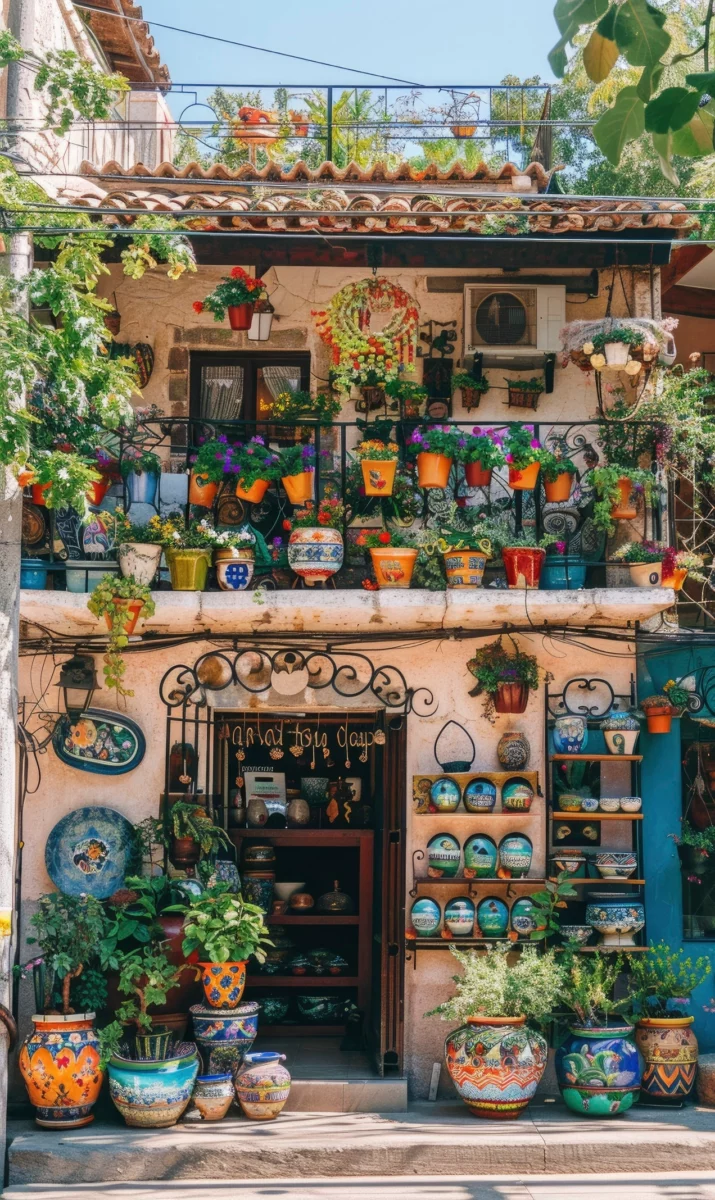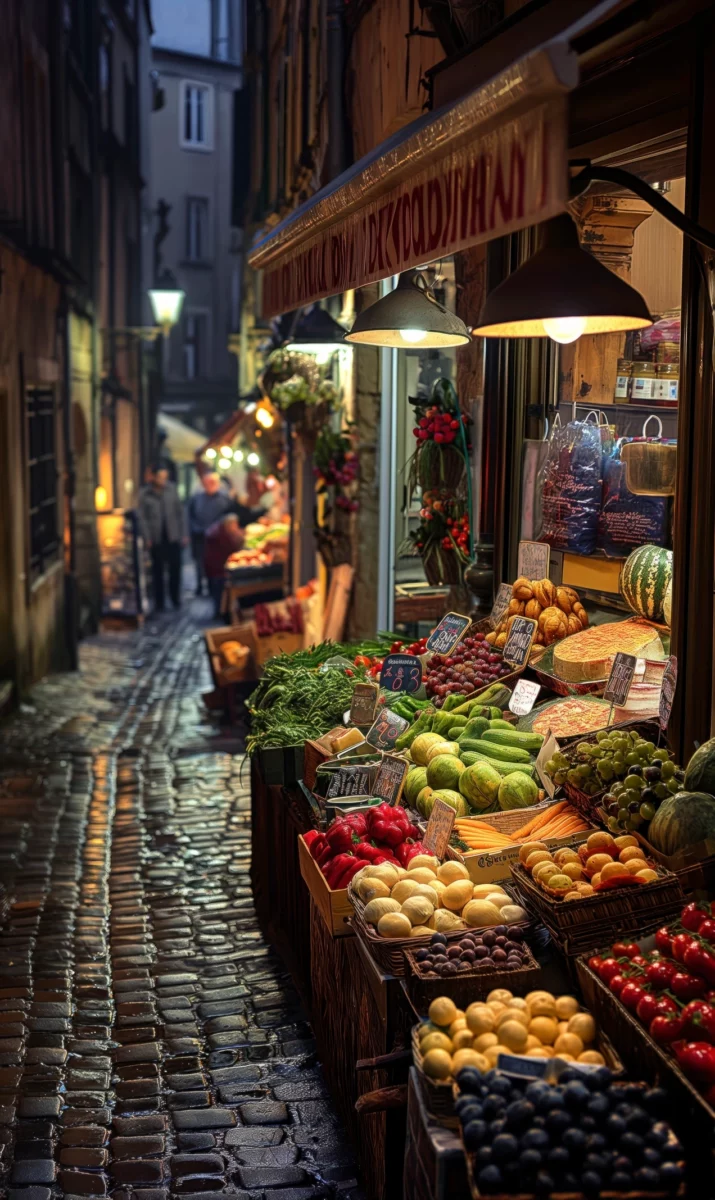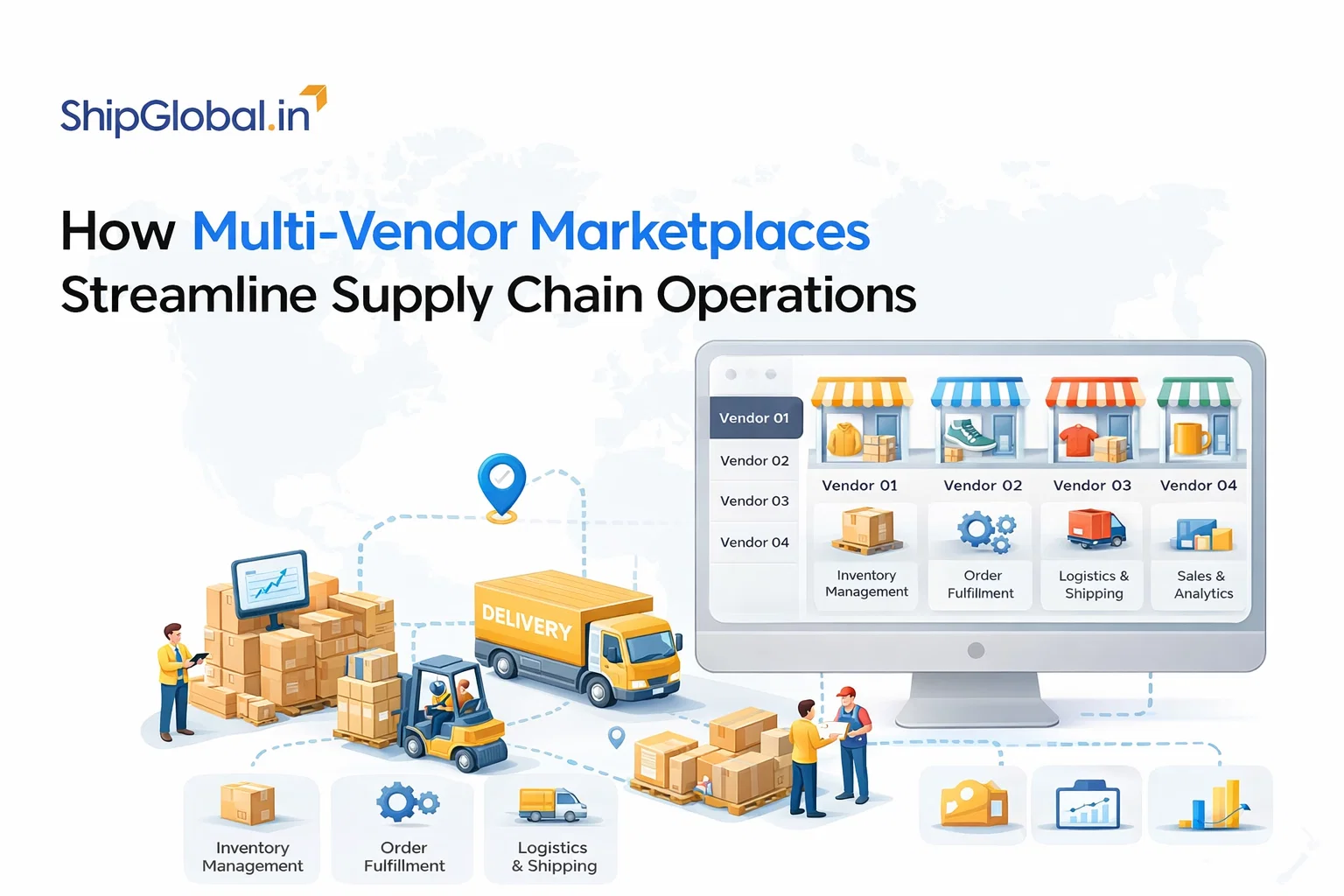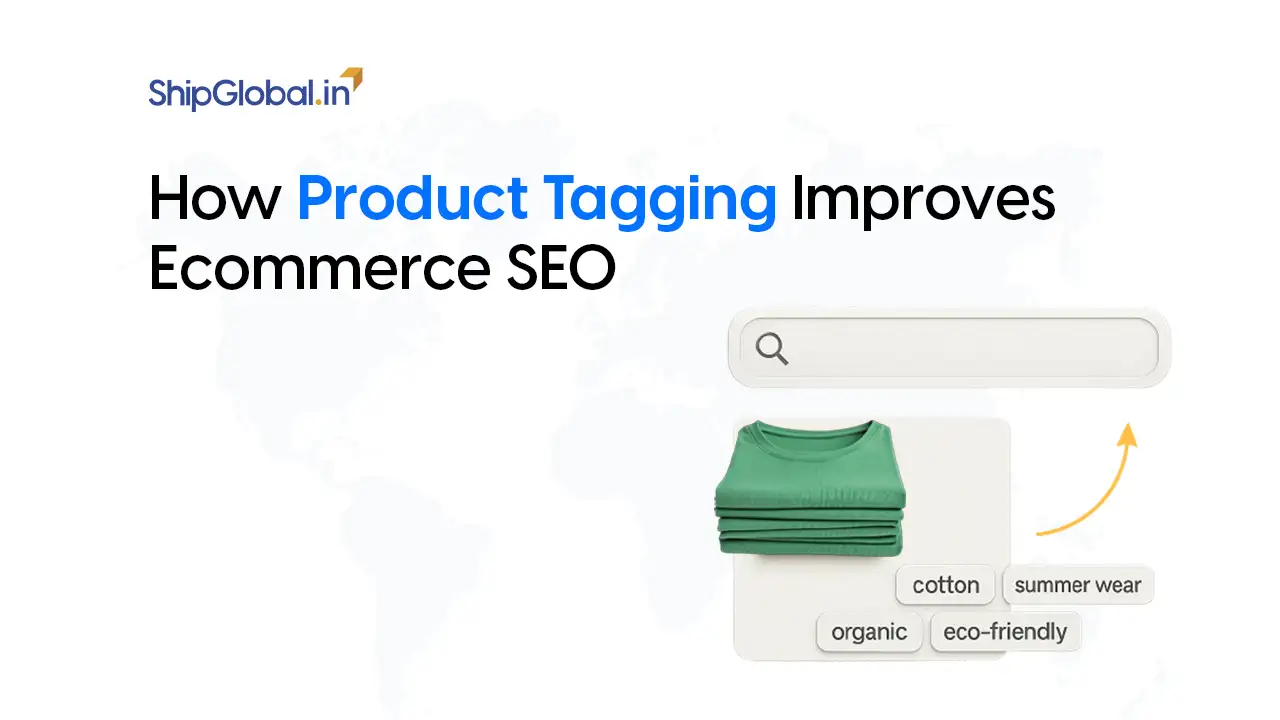Imagine beeches, stone streets and ocean air coming your way, people strolling around and no scrolling. Farmers selling on the streets with baskets full of original and natural herbs, oil and fruits. Beautiful, right?

Well, that’s Portugal, one of the most beautiful countries in the world. A country that celebrates balance in its everyday life, it loves a natural and slow-paced way of life. But what if I tell you that even you can sell your natural products in this country?
People from across the world are finding Ayurvedic oils, herbal teas or skincare products on those same shelves but with the Made in India tag.
A customer from the USA picks up your product, breathes in the earthy aroma, and smiles. That moment – that connection between India’s ancient wisdom and Portugal’s love for natural living – is what we’re here to create.
Let’s walk through this story together – from your workshop in India to the wellness stores of Lisbon and beyond.
Why Portugal Loves Ayurveda

Famous for their beaches and beautiful architecture, people in this country embrace wellness from their homes to the streets. People here are curious about natural healing, herbal therapies, and the balance between body, mind and soul.
And do you know what it’s exactly about in India? Ayurveda with its 5,000-year-old roots in Indian culture. It’s not just about this country; natural wellness trends in other European nations as well. People are turning to herbal and plant-based products.
Many Indian herbal brands in Europe are already riding this wave – combining traditional knowledge with modern presentation. They’ve realised that Portuguese consumers love authenticity – products that feel real, safe, and purposeful.
If you’ve ever dreamed of taking your Ayurvedic business global, Portugal could be your perfect entry point.
🌿 Market Demand for Ayurvedic Products
| Category | Why It’s Popular | Examples |
|---|---|---|
| Herbal supplements | Strong wellness culture and preventive health trends | Ashwagandha, Triphala, Giloy |
| Ayurvedic oils | Preferred for massages and aromatherapy | Kumkumadi, Mahanarayan oil |
| Herbal teas | Popular due to natural detox routines | Tulsi tea, Ginger tea, Herbal blends |
| Skincare | Clean beauty movement is rising | Face serums, herbal soaps |
| Haircare | High trust in plant-based hair remedies | Bhringraj oil, herbal shampoos |
Understanding the Market
But before you start exporting, take a moment to understand what your customers expect or want from you. Portuguese as well as European buyers look for transparency, trust, and sustainability. They’re drawn to words like organic, vegan, eco-friendly, and handcrafted.
These aren’t just labels – they’re part of a lifestyle. Some of the most in-demand Ayurvedic categories include:
- Herbal supplements and wellness tonics
- Ayurvedic skincare and massage oils
- Herbal teas and natural detox products
- Hair oils and herbal shampoos
Even small brands can succeed by starting online. Platforms that support cross-border eCommerce Ayurveda, like Amazon Europe or Shopify, let you reach customers without setting up a physical store right away. Once you find traction, partner with wellness retailers or organic stores across Portugal.
Navigating European Regulations

Whenever an Indian exporter thinks of selling in Europe first big challenge they perceive is of compliance, which is quite natural. The European Union takes product safety seriously, and to some great extent. But once you understand the rules, it becomes manageable and with ShipGlobal our export expert makes it easier for you to understand.
If your products are meant for external use (like creams, soaps, or oils), they fall under EU cosmetic and health product compliance. If they’re edible – like powders, teas, or capsules – they must meet EU health supplement regulations.
You’ll need to provide ingredient details, manufacturing records, and sometimes third-party lab test reports. These show that your product is pure, safe, and traceable.
And then there’s the Ayurvedic labelling requirements, which are very important. Your labels should clearly mention ingredients, directions for use, expiry dates, and country of origin. All text should include a Portuguese translation. The clearer your label, the faster your approval and acceptance.
📜 EU Compliance Requirements
| Requirement | Applies To | Purpose | Notes |
|---|---|---|---|
| EU cosmetic regulation | External-use items | Safety documentation and ingredient checks | Needed for oils, creams, soaps |
| EU food & supplement regulation | Edible items | Purity, safety, ingredient verification | For teas, powders, capsules |
| Lab test reports | All products | Verifies purity, safety & traceability | Third-party labs preferred |
| Label translation | All products | Ensures clarity for buyers | Must include Portuguese |
| Organic certifications | Ingredients | Builds trust & authenticity | EU Organic, India Organic, USDA |
Paperwork That Keeps You Moving
We have heard this a lot, and let’s be honest – exporting isn’t just about products; it’s about accurate and correct paperwork as well. But we help you in this as well, and once you know what’s needed, it becomes absolutely easy for you (Indian exporters).
Here’s your essential checklist:
- Import Export Code (IEC)
- GST and KYC documents
- Commercial Invoice and Packing List
- Certificate of Origin
- Health Certificate or Lab Report
- Phytosanitary Certificate (for plant-based goods)
- FSSAI License (if the product is edible)
These are the core herbal medicine export guidelines that most Indian exporters follow. Keep everything digital and organised – it’ll save you from customs headaches later.
📦 Essential Export Documents
| Document | Purpose | Issued By |
|---|---|---|
| Import Export Code (IEC) | Legal permission to export | DGFT India |
| GST & KYC | Business verification | Government authorities |
| Commercial invoice | Required for customs | Exporter |
| Packing list | Details quantity & packaging | Exporter |
| Certificate of origin | Confirms product source | Chamber of Commerce |
| Lab / health certificate | Ensures safety & compliance | Authorized labs |
| FSSAI licence | Mandatory for edible items | FSSAI India |
Certifications That Build Trust
Many exporters consider this as one of their major headaches, but keeping it simple let us tell you that in Europe, certification equals credibility. It’s that simple.
Buyers love as well as trust products that carry an organic certification for Ayurveda. This will be proof for them that your ingredients are grown and processed according to organic farming standards. Major certifications like EU Organic, India Organic, or USDA Organic go a long way in convincing new buyers.
Also, consider GMP (Good Manufacturing Practice) and ISO certifications – they communicate that your processes meet international quality standards. It’s not just paperwork; it’s your silent brand ambassador and once you clear this stage, it will be like a habit for you to export.
Shipping: From India to Portugal
Here’s where the real journey begins – getting your goods from India to Portugal, and you know who does it best? ShipGlobal.
For high-value, lightweight items like essential oils or supplements, air freight is faster and more reliable. For bulk shipments – like herbal powders or tonics – sea freight is more economical.
The key is packaging. Your boxes should be sturdy, leak-proof, and labelled correctly. Even a minor labelling error can cause delays at customs.
If logistics feels overwhelming, you don’t have to do it alone. Export partners like ShipGlobal handle international documentation, customs clearance, and door-to-door delivery, so you can focus on growing your brand instead of chasing paperwork.
Duties, Taxes, and Import Rules
The final hurdle that will come at this point is the customs process of Portugal. So, once your shipment reaches there it enters the customs process during which your product details are checked. This is where import duties on Portuguese Ayurvedic goods come into play.
Each and every product type has an HS code that decides its duty rate. Double-check your HS code to avoid surprises like additional charges.
Do not forget to remain updated with the Portugal import rules 2025 – the EU is introducing and even now has stricter sustainability and traceability norms. Remember, always maintain digital records of your ingredients, sourcing, and packaging to stay compliant as per rules and regulations. A good exporter should always have this ready for each of their shipments.
Portugal applies VAT (Value Added Tax) to imported goods, but that’s usually handled by your distributor or buyer. Still, always calculate your landed cost (product + freight + insurance + duties + taxes) before finalising pricing.

Selling in Portugal: Your Options
You can choose your route depending on your business size and goals:
- B2B Distribution – Partner with health stores, wellness chains, and pharmacies that already import herbal goods.
- Online Retail – Sell directly through cross-border eCommerce Ayurveda platforms like Amazon EU, Etsy, or your own Shopify store.
- Trade Fairs – Participate in European expos like Natural and Organic Products Europe or Biofach. Meeting buyers face-to-face often leads to long-term deals.
Whatever route you choose, remember: your brand story matters as much as your product.
Marketing: Tell Your Story, Don’t Just Sell
This is my personal favourite because when it comes to authenticity, Indian exporters can be so real. If you want to sell Ayurveda in Portugal then you can do it with sharing values, showcasing Indian culture and by being authentic.
People here and majorly in Europe love transparency, honesty and real connection. Tell them where your herbs come from, how they’re grown, and what Ayurveda means to you or its deep-rooted history in our civilisation. Post short videos showing your process or farmers harvesting ingredients. Because authenticity always makes a brand stand out.
Social media is your friend – use Instagram, LinkedIn, and YouTube to show your journey, make videos, create a carousel that has a story in it and put random images that people would love to see. And don’t forget B2B portals like IndiaMART or Alibaba to connect with wholesale buyers across the EU.
Common Mistakes Exporters Make (and How to Avoid Them)
Every exporter makes mistakes in the beginning. But we will tell you them now so that you can save your time, money, and stress.
- Incomplete paperwork: A missing signature can delay clearance by weeks.
- Ignoring regulations: Always follow EU (European Union) cosmetic and health product compliance closely these are strict.
- Skipping translation: Labels missing Portuguese text often get rejected, so remember to translate and then paste.
- Poor packaging: Broken bottles or loose seals cause instant shipment rejections. Seal them up nice and neat so that your customer gets happy and a moment with your product.
- Overpromising: Always ship what you can consistently produce – reliability wins repeat buyers.
Once you make sure of these, exporting will feel smoother and easier, that too hassle-free.
Tips for Long-Term Success
- Start small – try small shipments before scaling.
- Stay up-to-date with the Portugal import rules 2025 changes.
- Build lasting buyer relationships instead of chasing only sales.
- Keep your products authentic and same quality.
- Combine India’s ancient wisdom with global branding and modern packaging.
That’s the formula that has helped many Indian herbal brands in Europe build loyal customer bases.
Conclusion
Portugal is more than a destination – it’s a bridge between India’s ancient Ayurvedic heritage and Europe’s modern wellness movement.
The world is looking for authentic, natural solutions, and Ayurveda offers exactly that. With the right documents, compliance, and a little storytelling, your products can soon find their place in Portugal’s wellness shelves and homes.
So start preparing your documents, align with herbal medicine export guidelines, double-check your Ayurvedic labelling requirements, and plan your first shipment.
Because somewhere in Lisbon, someone’s waiting to discover the calm, healing touch of your Ayurveda.
Frequently Asked Questions
Yes, you’ll need an Import Export Code (IEC) from DGFT, and depending on your product type, an FSSAI license or manufacturing certification. Once you have those, you’re good to start.
Absolutely! Many exporters start with cross-border eCommerce on platforms like Amazon Europe or Shopify. It’s a great way to test demand before going big.
Most common herbs are allowed, but some ingredients might need extra clearance. It’s always smart to check the EU health supplement regulations or talk to a local distributor before shipping.









